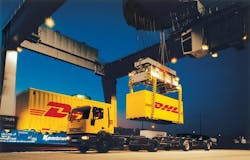Logistics: Becoming more critical to business success by the day
So it is really no secret that logistics is a vital component – if not the vital component – in determining whether almost any type of business venture in any segment of our economy succeeds or fails.
Take manufacturing, for example. According to a new survey conducted by enterprise resource management software provider IQMS, while 92% of the companies polled said “product quality” is the “leading measure of success” in their line of work, on-time delivery stood out as the second most popular answer.
Interestingly, “low price” only ranked fourth as an element that would foster success in manufacturing, noted Gary Nemmers, CEO for IQMS.
“We are seeing a renaissance in U.S. manufacturing as more businesses realize that they need to go beyond competitive pricing to compete in the global market,” he explained in a statement. “The new survey of our manufacturing customers confirms what we have been hearing anecdotally for the last year: The most successful companies are growing their business by delivering high quality products quickly and reliably while demonstrating the ability to adapt rapidly to changing demands.”
Another interesting finding from this survey devolved from this repetitive question: “What value-added services do your customers value most?” Not surprisingly, since this is manufacturing, of course, short-notice production capabilities took top honors, cited by 57% of the manufacturers polled, while compliance and testing documentation came in a close second.
Yet several other key services were almost evenly split among participants: product assembly, electronic data interchange (EDI) and supply chain integrations, plus detailed labeling.Once again, the importance of the supply chain gets a very public nod on the part of manufacturers in this poll, Nemmers noted.
“In manufacturing, we are seeing a growing recognition of ‘vendor value’ that goes beyond the physical part or device to such factors as fast delivery times, accurate documentation, efficient communications, and up-to-the-moment tracking,” he said. “Our survey highlights that these capabilities serve as key differentiators for manufacturers today and represent opportunities for companies that choose to invest in these areas in the future.”
DHL Global Forwarding, the air and ocean freight arm of Germany’s Deutsche Post DHL Group, also discerned a similar vein of thought regarding supply chain services within the chemical industry.
It’s recent whitepaper Differentiated Logistics Services – commissioned by DHL and developed by Kompetenzgruppe Chemielogistik together with global chemical company Evonik Industries – discussed how “old school” businesses like chemical companies can use create a more customer- and service-centric approach to logistics in order to be more successful.
“With B-to-B logistics becoming more service oriented and business customers demanding e-commerce-like experiences, competitive advantage is no longer being determined by the product alone but more by the package of logistics services wrapped around the product offering,” noted Michael O’Hara, global head of chemicals at DHL Global Forwarding, in that whitepaper.
“As this trend grows, responsive logistics solutions become not just ‘nice to have’ but a deciding differentiating characteristic,” he stressed. “Chemical producers who can strategically and quickly change their traditional view and offer differentiated logistics services will create competitive advantages, build customer loyalty and increase their bottom-line.”
It just goes to show that logistics and supply chain services – and yes this includes trucking – is no longer an afterthought within the minds of many companies, especially ones in mature industries like chemicals and manufacturing. Hopefully this new mindset will spread rapidly and include a deeper appreciation of the trucking services that support their businesses.




